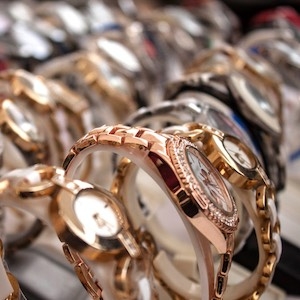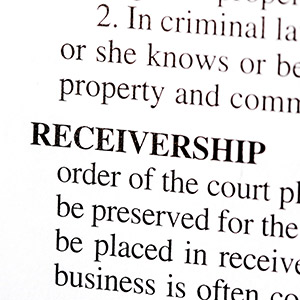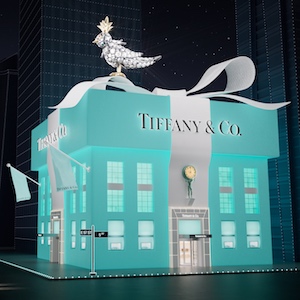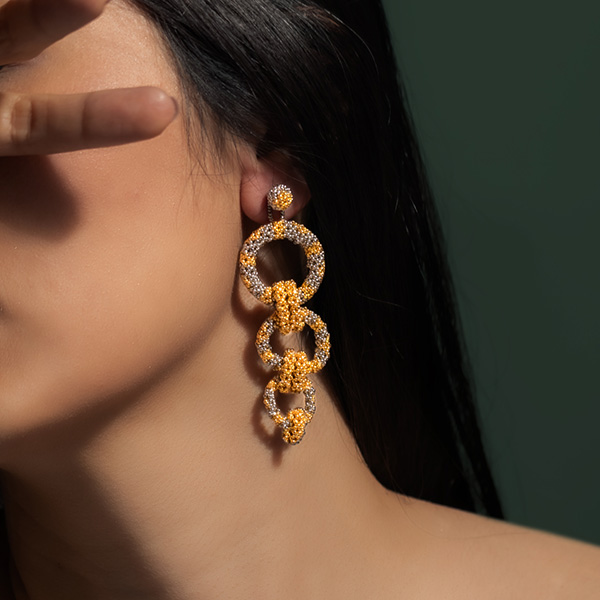
Earth Day may be once a year in the United States, but for the Wixaritari indigenous artisans who create Kuu’s delicate beaded jewelry, nature and their connection to the earth are essential parts of their belief system and how the company operates year-round.
For cofounder and CEO Arizbeth Fierro, the Kuu jewelry and art brand has come to define sustainability and love for the environment because of the people who make it. She says since Kuu launched in the United States in 2021, it has sought to share its story with its growing customer base and how its socially conscious brand is working with Mexican artisans in an important and compassionate way.
Kuu is made by Wixaritari artisans based in Mexico who seek to merge “traditions and contemporary art,” Fierro says.
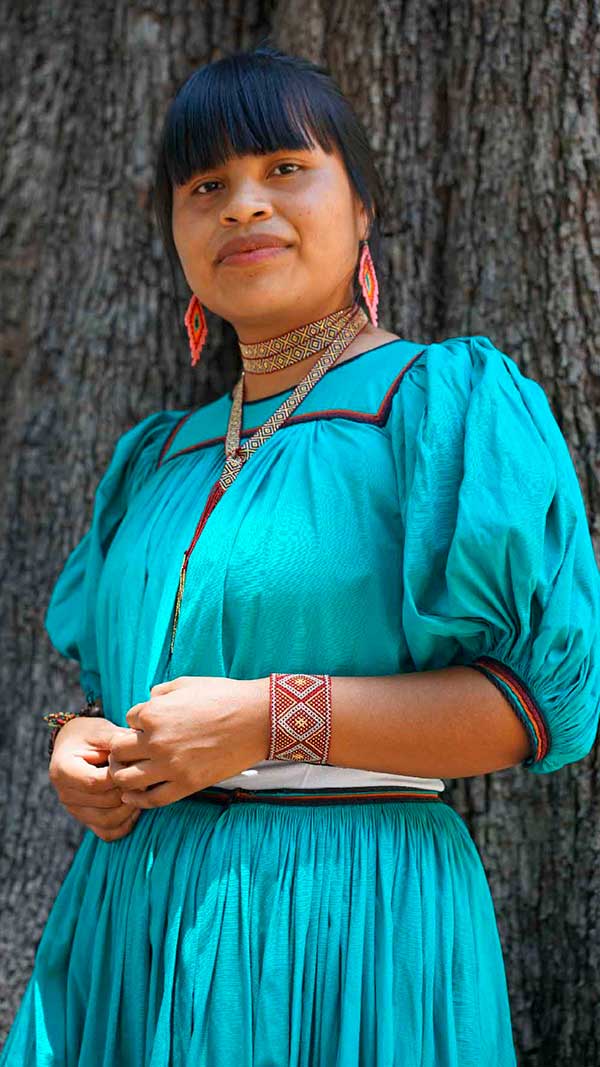
“They are the one of the oldest living indigenous people in the world today, and they believe in honoring the earth for everything it provides for them,” Fierro says. “Once a year, the Wixaritari make a sacred journey to five sacred territories to reconnect with their gods: Sierra Wixarika, Isla de los Alacranes, Cerro Gordo, and the Sierra de Catorce. On this journey they harvest and eat peyote [a hallucinogenic cactus] that gives them visions. This has been a great factor to the development of their creativity and art for centuries.”
At Kuu, Fierro says sustainability means meeting the needs of the present without compromising future generations. For example, Kuu upcycles its beads, and the brand considers itself “slow fashion” because each piece is made to order to reduce raw-material waste.
“This is a belief that also belongs to the Wixaritari indigenous people,” Fierro says. “At Kuu, we are socially conscious and pay our artisans a fair living wage for their work. We also repurpose all the raw material that does not get used or materials from previous collections that did not sell to be used for future collections, so that no materials are wasted.”
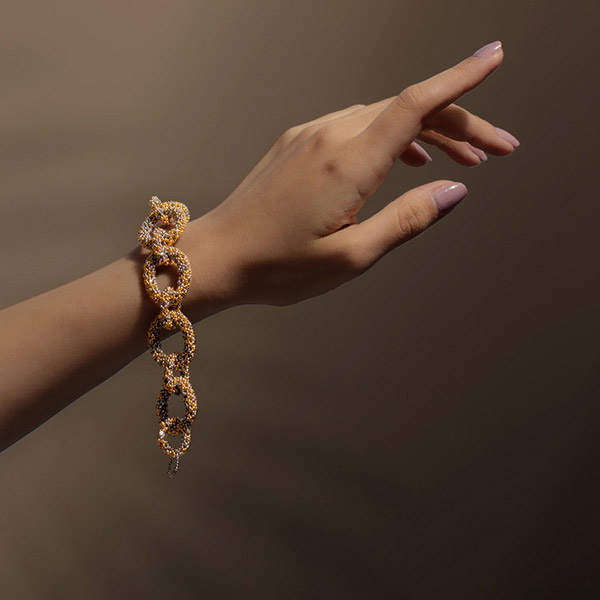
Fierro and Kuu cofounder Martha Collignon launched the brand in 2014 in Guadalajara, Mexico. Kuu saw interest in the brand and its use of 24k gold– plated, silver, and platinum chaquira beads through its sales in top luxury hotels in Mexico, including the Four Seasons resorts in Mexico City and near Punta Mita. They had hoped to introduce it into the United States in 2020, but the coronavirus pandemic postponed their plans. Now, they are based in Miami and hope to grow quickly.
“Since we first launched the brand, the goal has always been to reach every corner of the world for people to discover the beautiful artwork that is made in Mexico by our incredible artisans. The U.S. is only our first stop,” Fierro says.
That growth also comes from building the brand within Mexico, where Kuu seeks to support the Wixaritari indigenous people through investing in its people and art, Fierro says.
“When we first started the brand, we only worked with four artisans. Today, we currently work with more than 30 artisans,” Fierro says. “They have become like family to us. We have more than 10 years of relationship with some of them, and, together, we have grown immensely. We support their artistry by supplying them with all the necessary tools to continue to grow and expand their creativity.”
Top: One of Kuu’s most popular pieces is its double-chain earrings, which are handmade by members of the Wixaritari culture and woven with more than 3,180 mini faceted crystal beads bathed in platinum and 24k gold ($145); photos courtesy of Kuu.
Follow me on Instagram and Twitter
Follow JCK on Instagram: @jckmagazineFollow JCK on Twitter: @jckmagazine
Follow JCK on Facebook: @jckmagazine

